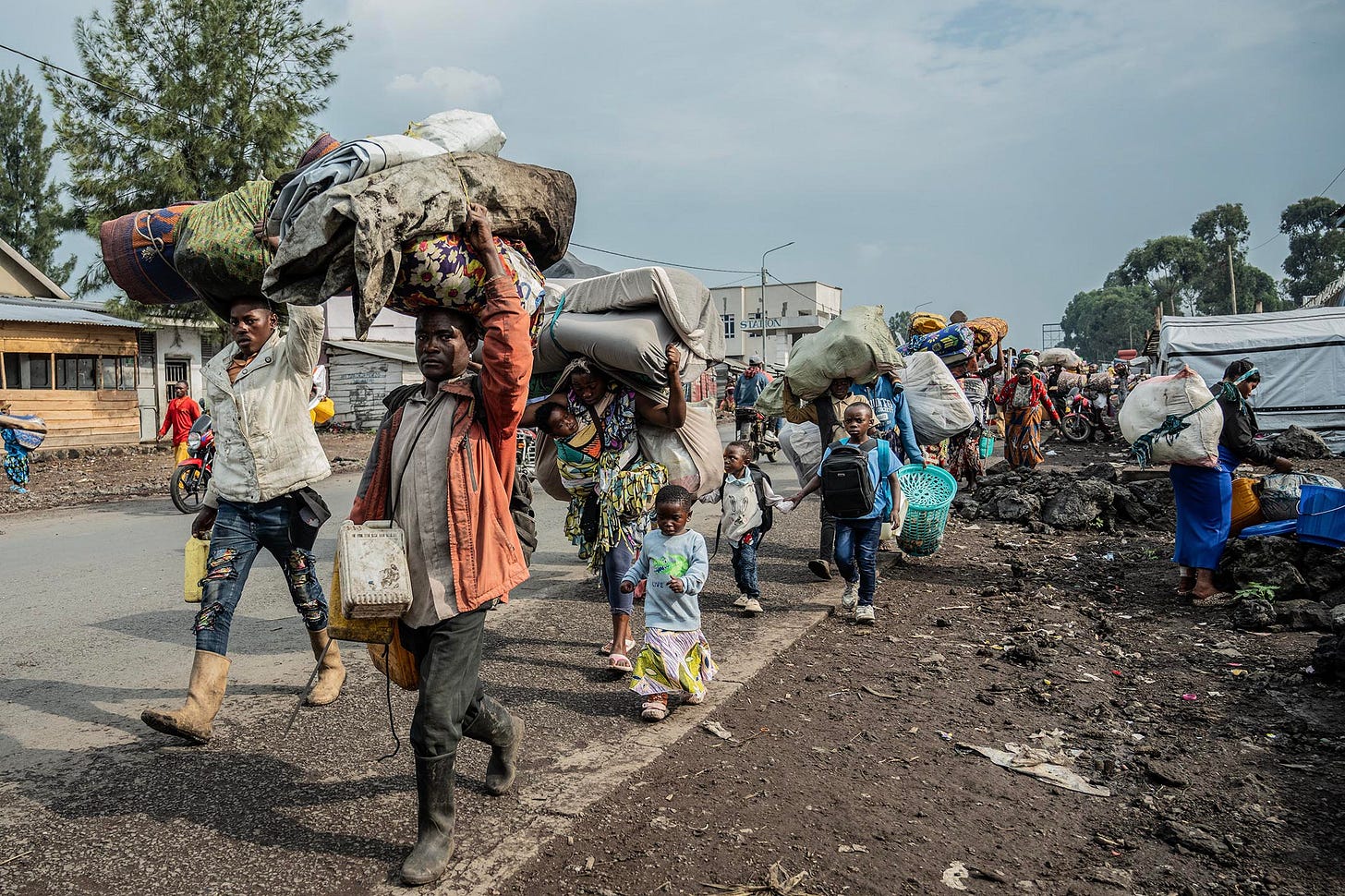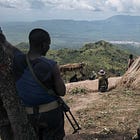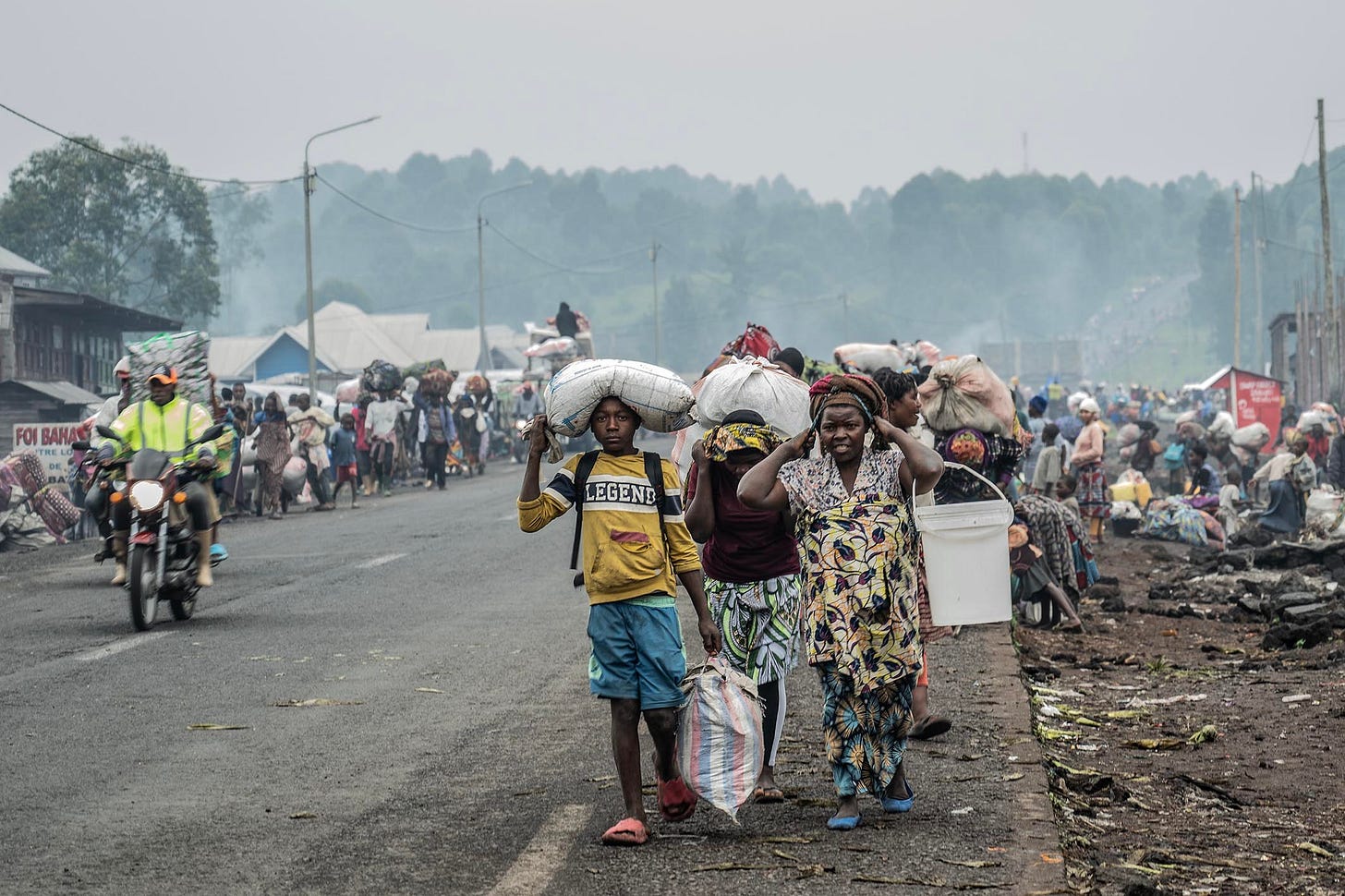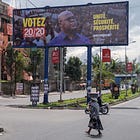Goma’s war-displaced people turn to locals for aid
The camps are already full, stretched, or unsafe – and that’s before cuts in aid budgets.
Ajabu Adolphe in Goma

Patience Uwezo is a teacher and mother of three living in Goma. Since 18 January her family has taken in two more families, adding seven people, including a pregnant woman, to their household. “It’s a delicate situation. It’s not easy to feed a bunch of people when there’s no money in circulation because of the war,” she admits.
But because some of her own family members died in a bombing at a camp for displaced people, she can’t bring herself to tell her guests to leave. In peacetime, Uwezo used to supplement her teaching income of less than $100 a month by farming half a hectare in Masisi, outside Goma. That area fell to the March 23 Movement (M23) a few weeks ago and she was cut off from it.
Before soldiers from the armed group marched in and seized the city on Monday, Goma’s camps for people displaced by the wars in eastern Congo were overflowing. International aid agencies were pushing beyond their funded capacity. On Tuesday M23 closed the city’s airport, obstructing international aid further. In the chaotic capture, the World Food Programme’s warehouses were ransacked and looted.
As the institutions meant to help falter, locals are picking up the load to help – even though they barely have the means to do so.
Mercidieu Ishara, a 30-year-old social activist, has been sheltering four members of a displaced family since 23 January. All f ive are crammed into his three-roomed house. “If we have food, we eat together. If we have nothing to eat, we go hungry together,” he tells The Continent.
In the city’s outskirts, nearly 50 people have pitched tents on Alice Byenda’s 20m by 15m yard in the Ndosho area. Most of them fled from the Lushagala camp after it was shelled in May as Congolese government soldiers and M23 fighters exchanged artillery fire. “I saw how a whole family was decimated by the bombardments,” says Luanda Baeni, a father of six who had fled to the camp from Minova in South Kivu province. “It affected me a lot.”
Byenda’s family of six used to get by for several weeks on a 25kg bag of rice. Now she needs one every two days to feed the people she is hosting. “It’s a heavy burden.”
Furaha Mwamimi, a war-displaced woman who, together with her three children, is living with a single man in Goma, is all too aware that she is a “burden”. But she says she doesn’t have much choice. “I came from Bweremana during the fighting. A good Samaritan brought me here to Goma. I couldn’t go to the camps because I didn’t want to lose my life there.”
As early as Tuesday, even though the security situation was still dicey, some of the displaced people staying with host families in Goma were already trying to return to their places of origin.






